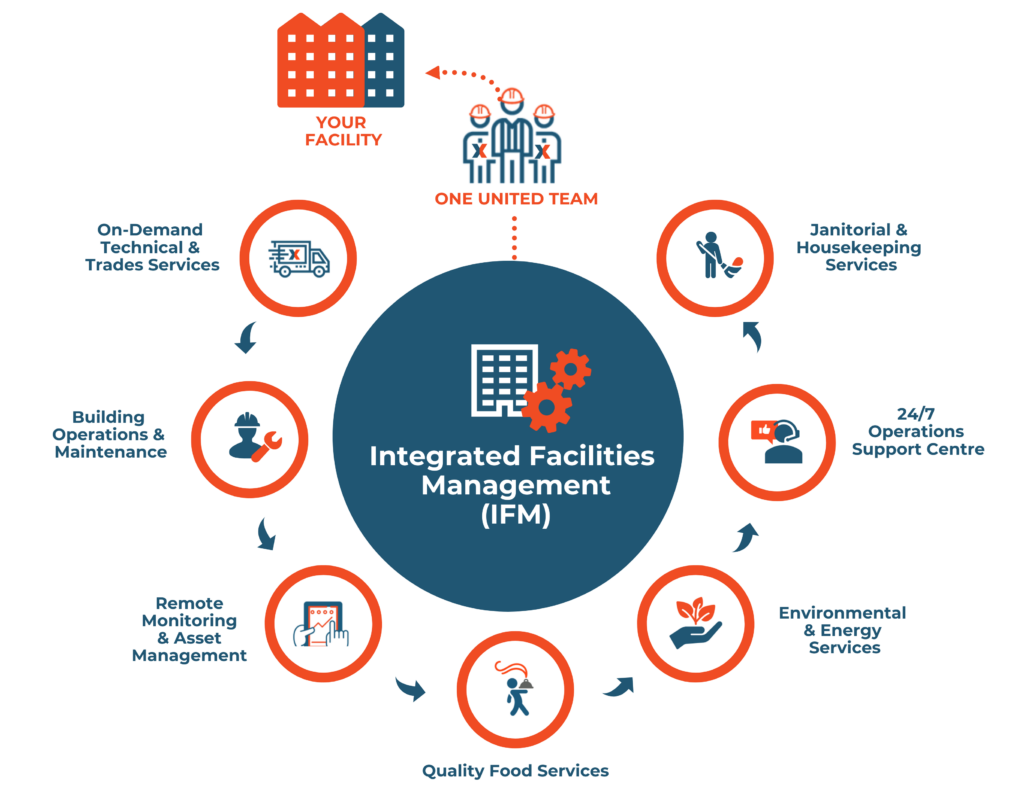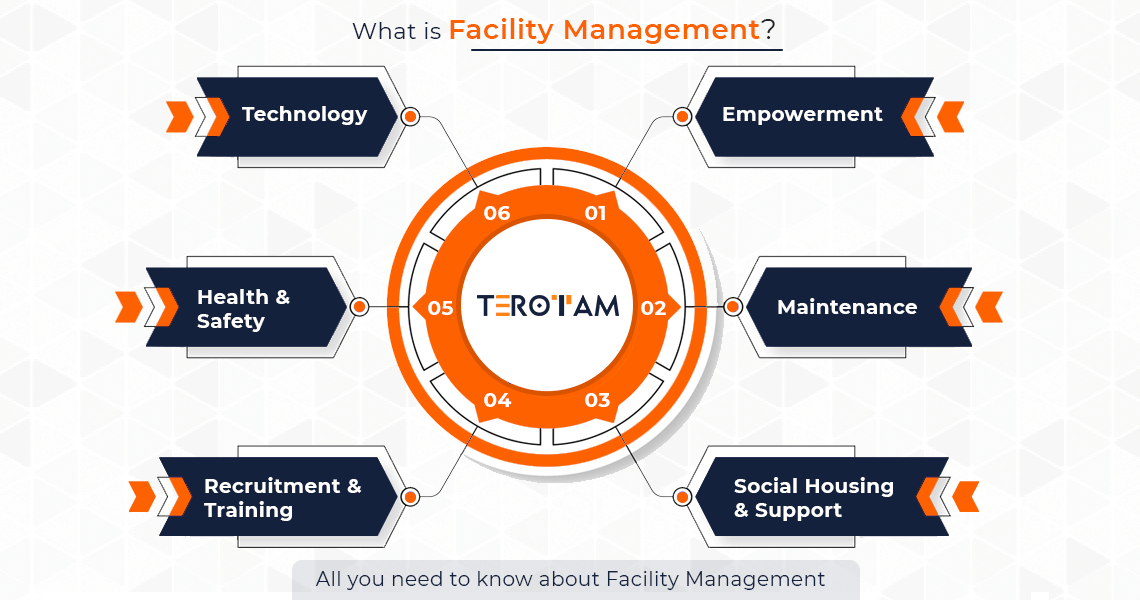Key Trends Shaping the Future of Center Monitoring in 2024
As we look in advance to 2024, the landscape of center administration is poised for substantial transformation, driven by numerous crucial trends. The assimilation of wise building modern technologies and a change towards data-driven decision-making promise to boost operational efficiency while focusing on sustainability in method.
Smart Structure Technologies

Smart structure modern technologies incorporate a wide range of systems, including intelligent illumination, cooling and heating controls, and protection systems. By incorporating these systems, center supervisors can check and readjust criteria in real-time, leading to significant decreases in power waste and functional prices. As an example, smart sensors can discover tenancy degrees and adjust lights and temperature as necessary, guaranteeing that power is only made use of when essential.
In addition, these modern technologies facilitate improved information collection, allowing companies to track use patterns and identify opportunities for further enhancements. The implementation of wise building technologies not only contributes to sustainability goals but also produces much healthier job atmospheres that can improve staff member performance and fulfillment.
As we move right into 2024, the adoption of clever structure modern technologies will likely accelerate, showing a broader change towards more smart, receptive, and lasting facility administration practices.
Data-Driven Choice Making
Progressively, organizations are leveraging data-driven decision making to boost facility administration practices. By using data analytics, facility supervisors can obtain actionable insights that dramatically improve operational efficiency and resource allowance. The integration of innovative innovations, such as IoT sensors and real-time surveillance systems, makes it possible for the collection of huge amounts of data on building efficiency, occupancy prices, and power usage.
This wealth of info permits center managers to recognize trends, forecast maintenance demands, and proactively address issues prior to they escalate. Predictive analytics can forecast devices failings, lowering downtime and repair costs. Furthermore, information visualization devices promote better communication among stakeholders, ensuring that educated decisions are made collaboratively.
Furthermore, data-driven techniques boost critical preparation by making it possible for center supervisors to assess the effectiveness of current methods and make notified options relating to financial investments in modern technology or framework. As companies significantly prioritize operational excellence, data-driven decision making is positioned to end up being a foundation of successful center management techniques in 2024 and beyond. Eventually, the capability to take advantage of data efficiently will equip organizations to create extra reliable, effective, and durable facilities.
Sustainability and Green Practices
The emphasis on data-driven choice making naturally aligns with the growing emphasis on sustainability and eco-friendly methods within facility management. As companies significantly focus on ecological obligation, facility managers are leveraging analytics to maximize resource usage, reduce waste, and minimize carbon footprints. This strategic method enables the integration of energy-efficient systems, such as LED lights, clever cooling and heating controls, and sustainable energy resources into center operations.
In addition, the execution of lasting techniques expands beyond power intake. Facility managers are advertising and taking on green products reusing initiatives to create a round economic climate within their facilities. This not just improves the ecological profile of the company however additionally promotes a society of sustainability among staff members.
Compliance with ecological regulations is one more crucial facet driving the adoption of eco-friendly practices. By using information analytics, facility managers can check compliance metrics and determine areas for enhancement, ensuring adherence to global and regional sustainability criteria.
Hybrid Work Designs
A significant shift towards hybrid job versions is reshaping the landscape of facility administration in 2024. This standard integrates remote and in-office work, requiring a reevaluation of room utilization, resource allotment, and staff member involvement strategies. Organizations are increasingly acknowledging the relevance of adaptable workspaces that satisfy varied needs and preferences.
Facility supervisors must adjust by implementing flexible office styles that sustain collaborative initiatives while providing areas for concentrated work. This consists of the integration of modern technology to help with smooth communication and cooperation among in-office and remote employees. Smart structure remedies, geared up with sensing units and analytics, permit real-time surveillance of space use, enabling companies to optimize their atmospheres successfully.
Furthermore, crossbreed job models highlight the need for efficient facility administration that focuses More hints on staff member experience. This encompasses not only modern technology and room design however likewise the advancement of plans that advertise a well balanced work-life dynamic. As companies navigate this shift, the function of center monitoring comes to be pivotal in creating a nimble workplace that promotes performance see it here and drives business success. In significance, the hybrid work design is reinventing center monitoring, urging an aggressive strategy to fulfill the advancing needs of the labor force.
Improved Resident Wellness
As companies welcome hybrid job designs, an increased focus on resident wellness is becoming integral to center monitoring approaches. Facility Management. This shift recognizes that a healthy and satisfied workforce directly influences efficiency and retention rates. Facility supervisors are currently focusing on settings that promote physical and psychological wellness, integrating aspects such as natural lights, biophilic style, and accessible wellness sources

Technology plays an essential role in this evolution. Smart building systems can monitor environmental factors and adjust settings in real-time, ensuring optimum convenience degrees - Facility Management. Comments devices, such as tenancy sensors and employee studies, enable facility managers to consistently improve wellness efforts based on occupant demands.

Final Thought
In 2024, the future of facility administration will certainly be substantially affected by the integration of wise building innovations and data-driven decision-making, cultivating improved operational performance. Sustainability initiatives will focus on eco-friendly practices, while the introduction of crossbreed work designs will certainly demand flexible office styles. An increased emphasis on passenger health via innovative HVAC systems and useful link biophilic design will contribute to healthier work environments. These trends collectively underscore the developing landscape of facility administration in action to modern difficulties and chances.
Center supervisors are embracing green products and promoting recycling initiatives to develop a round economic climate within their facilities.A substantial change towards crossbreed job designs is reshaping the landscape of center administration in 2024.Furthermore, hybrid job designs highlight the need for reliable center management that focuses on worker experience.As organizations accept hybrid work versions, an increased focus on passenger wellness is coming to be important to facility monitoring methods.In 2024, the future of facility monitoring will certainly be considerably affected by the combination of clever building modern technologies and data-driven decision-making, promoting improved functional efficiency.